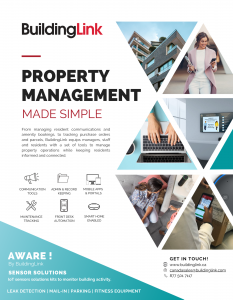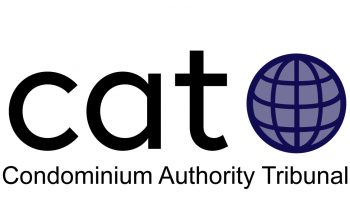 May 2023
May 2023
The Condominium Authority of Ontario is celebrating its fifth year of operation. In this five-part series, Toronto Condo News looks at how CAO and the Condominium Authority Tribunal have impacted on condominium living and management, and present an inside-view of what it is like to appear before the Tribunal.
February 2022 – Fairness and Justice in Condominium Communities
March 2022 – What they Don’t Want you to Know – Lurking behind their closed door
April 2022 – Making a Successful CAT Submission
May 2022 – Calling for the Expansion of CAT
June 2022 – Condo Disputes without CAT
The Condominium Authority Tribunal has become a fixture of condominium governance.
The scales of justice are more balanced. The Tribunal offers condominium corporations a means for resolving disputes more economically than going to court. Condominium owners don’t have to incur large legal fees fighting a corporation represented by a lawyer. The Tribunal’s practice of not awarding legal fees to either party makes the system fairer.
The Tribunal process may at times be slow. They may not always make the right decision, or entirely ignore concerns when new or novel issues are brought to their attention. This remains a better system than the prior one where disputes were resolved in private with no public records available for the establishment of best practices and better decision making. Those spending extravagantly on legal fees are at less of an advantage.
The Tribunal does not require legal representation. Condominium corporations and owners appearing before the Tribunal are more equal than would otherwise be the case in arbitration or in court. Those choosing to rely on legal representation do so at their own cost. A condominium corporation spending extravagantly to be represented at the Tribunal is accountable to owners who see their legal costs increasing.
 Tribunal decisions are published and offer a growing body of best practices for condominium corporations and owners to follow. Prior to the Tribunal, disputes were more frequently resolved with private agreements which prevented dissemination and awareness of best practices.
Tribunal decisions are published and offer a growing body of best practices for condominium corporations and owners to follow. Prior to the Tribunal, disputes were more frequently resolved with private agreements which prevented dissemination and awareness of best practices.
Thus far, authority of the Tribunal has been limited. The condominium community has been waiting for the Tribunal to expand their jurisdiction to address the most common resident concerns.
Jessica Bell, MPP for University–Rosedale and NDP Housing critic, has called for expansion of the Tribunal to resolve common condo complaints. She had introduced a motion for the Ford government to expand the jurisdiction and enforcement power of the province’s Condominium Authority Tribunal so condo residents can have their most common concerns resolved in a fast, fair and inexpensive manner.
“Ontario’s 1.3 million condo residents deserve to live in safe, well-maintained homes,” said Bell. “The Conservative government has failed to properly regulate Ontario’s condo sector, which means residents have nowhere to go but court when they face common issues, from unexplained condo fees hikes to fraudulent board elections,” Bell said.
“The jurisdiction of the Condo Tribunal must be expanded so condo residents have a fast, affordable and fair way to have their concerns heard and addressed, without spending thousands of dollars and years of their life stuck in court,” Bell said.
In 2020, Ontario’s Auditor General released a damning report of the province’s condo sector, calling for legal and regulatory changes including expanding the reach of the Tribunal. The Auditor General released a status report on the condo sector in 2022, revealing that the government has been slow to implement the Auditor General’s recommendations to strengthen the Tribunal and improve oversight over the condominium sector.
The Tribunal currently hears disputes on records maintained by condo corporations and condo owners’ rights to access those records, as well as pets, parking, storage, personal property and nuisance issues. Bell’s motion would have authorized the Tribunal to adjudicate the most common complaints residents face, including condo board governance, property management, condo fees, repairs in common areas, short-term rentals, and reserve funds.
Legislation to expand jurisdiction of the Condominium Authority Tribunal did not pass in the Ontario legislature.








